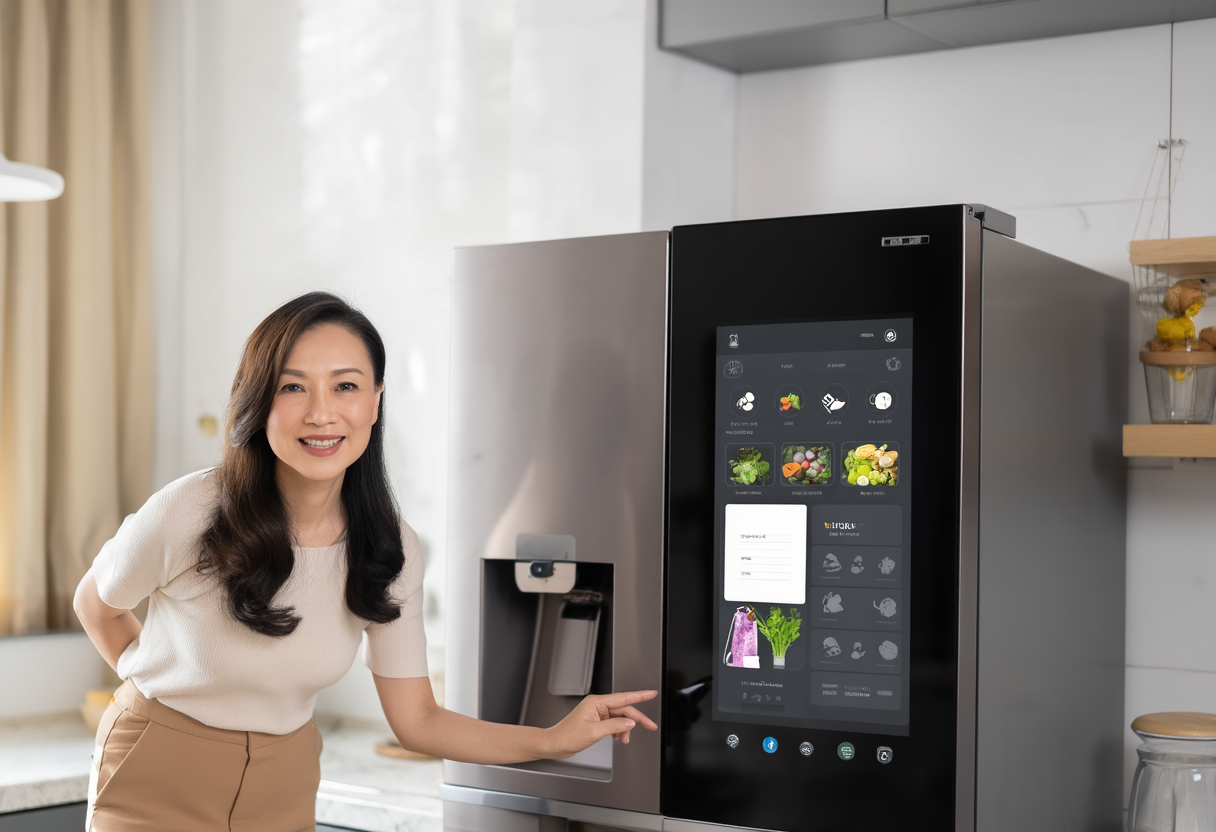Smart Refrigerators Revolution: Exploring Their Impact on Modern Kitchens
Smart refrigerators are not just appliances; they represent a revolution in managing food storage efficiently. These devices, equipped with advanced features such as adaptive cooling, food tracking, and energy-saving modes, are changing kitchen dynamics. This article delves into how smart refrigerators are enhancing user experiences and reshaping culinary traditions while also considering their environmental benefits in the context of climate change.
An Overview of Smart Refrigerators
The rise of smart refrigerators marks a significant evolution in home appliances. By combining sophisticated technology with everyday kitchen functions, these appliances enhance the way we interact with our food. Smart refrigerators can connect to the internet, provide real-time inventory updates, and suggest recipes based on available ingredients, thus elevating user experience to new heights. This transformation embodies the seamless integration of technology within the domestic space, making food management not just easier but also more enjoyable. Gone are the days of manual inventory checks; smart refrigerators automate these tasks through interconnected systems.
Enhancing Culinary Experience
The culinary experience is being redefined by smart refrigerators. As they allow for better organization and easy access to ingredients, home cooks can focus more on creativity rather than logistics. The ability to view inventory remotely means last-minute grocery store runs may become a thing of the past. Recipe suggestions and guided cooking modes help educate users about preparing new dishes, thereby enhancing culinary skills over time. Such features not only inspire experimentation in the kitchen but also help minimize food waste by encouraging users to utilize ingredients they already possess.
Environmental Impact and Sustainability
In the face of climate change, smart refrigerators contribute significantly to sustainability efforts. Their energy-efficient designs help households reduce their carbon footprint while cutting down on utility bills. Advanced cooling technologies ensure that food stays fresh longer, ultimately leading to less waste. By integrating connectivity features, smart refrigerators can also monitor energy usage and suggest optimal settings to conserve power. This capability empowers consumers to engage in environmentally responsible practices with minimal effort. Consequently, smart refrigerators align consumer needs with global sustainability goals, demonstrating potential for broad societal impact.
Challenges in Adoption
While the benefits of smart refrigerators are noteworthy, there are also challenges that consumers face upon adoption. The complexity of navigation and technological features can be overwhelming for some users. Data privacy concerns must also be addressed, as these appliances collect and use personal information. Manufacturers are tasked with ensuring transparency and security to foster trust among consumers. Furthermore, the initial cost of smart refrigerators may deter some potential buyers, although long-term savings typically justify the investment. Education and awareness campaigns can play vital roles in easing consumer apprehensions.
The Future of Smart Refrigerators
Looking ahead, the potential for innovation in smart refrigerators is immense. Advancements in artificial intelligence and machine learning may further optimize how these appliances interact with users. Future iterations could include even more personalized suggestions and integration with other smart home devices, promoting a fully connected lifestyle. Predictions indicate that as home automation gains popularity, smart refrigerators will likely become standard in modern kitchens. The ability to adapt to user preferences and dietary needs will be crucial in catering to diverse consumer demographics.
Final Thoughts
In summary, smart refrigerators are revolutionizing how we manage food storage and preparation. With their rich array of features, they not only enhance user experience but also support sustainable practices that align with modern environmental concerns. As technology shares a growing role in our daily lives, smart refrigerators stand at the forefront of this change. Embracing this technology means stepping into a future where convenience and sustainability coexist to enrich the culinary landscape.
